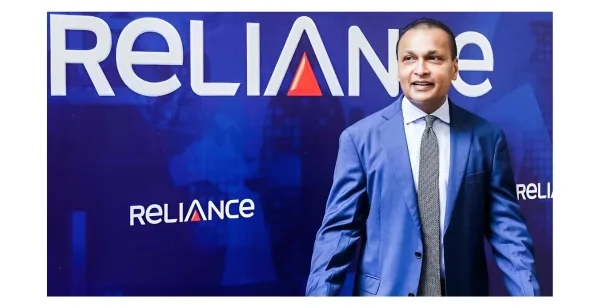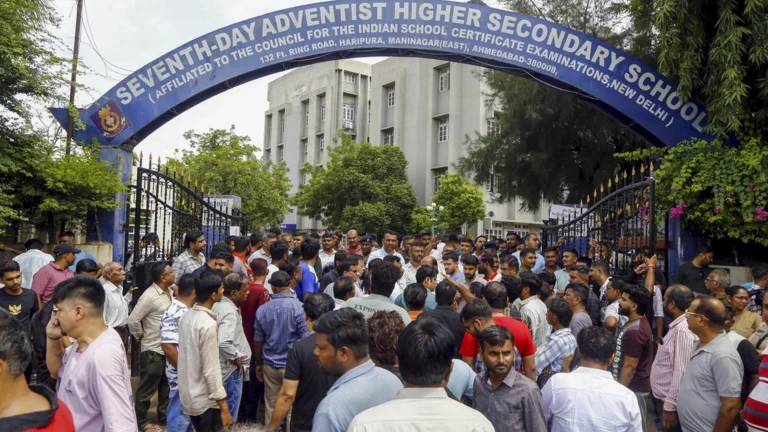
CBI Files Case Against RCom, Raids Premises Linked to Anil Ambani in ₹2,000-Crore Bank Fraud Probe
New Delhi, August 23, 2025: The Central Bureau of Investigation (CBI) has initiated a major action against Reliance Communications (RCom), once a leading player in India’s telecom industry. The agency has registered a First Information Report (FIR) and carried out searches at multiple locations in Mumbai connected to RCom and its Promoter Director, Anil Ambani, in connection with an alleged bank fraud amounting to more than ₹2,000 crore involving the State Bank of India (SBI).
This development marks a new phase in ongoing investigations into financial irregularities associated with the company, which has been under the scanner of banks and regulators for several years.
CBI’s Search Operation
According to officials, the CBI conducted raids across six premises linked to Reliance Communications and Anil Ambani. The objective was to secure documents, electronic data, and records that could shed light on the company’s loan utilization. Authorities are examining whether the borrowed funds were diverted or misused, causing substantial losses to SBI and potentially other lenders.
This action was taken shortly after SBI formally categorized RCom’s loan account as fraudulent. The classification, made on June 13, 2025, was reported to the Reserve Bank of India (RBI) on June 24, 2025, prompting the investigative agency to step in.
SBI’s Report and Loan Exposure
Parliamentary disclosures reveal the extent of SBI’s financial exposure to Reliance Communications. The bank has outstanding dues of ₹2,227.64 crore in fund-based lending, excluding accrued interest and charges since August 2016. Additionally, it holds ₹786.52 crore in non-fund-based guarantees.
These figures highlight the scale of the issue and explain why the case has drawn such significant attention from regulators, investigative agencies, and policymakers.
Connection to Previous Investigations
The latest CBI action follows closely on the heels of questioning by the Enforcement Directorate (ED). Earlier this month, Anil Ambani was interrogated for nearly ten hours in connection with a separate money laundering probe. That investigation focused on loans obtained by RCom as well as other group companies such as Reliance Home Finance (RHFL) and Reliance Commercial Finance (RCFL).
Taken together, these parallel investigations suggest a broader examination of financial practices within the Ambani-led Reliance Group entities.
The Broader Context
This is not the first time that Reliance Communications has faced financial distress. Once a leading telecom operator in India, RCom struggled after intense competition, mounting debt, and a failed merger attempt with Aircel. Eventually, the company slipped into insolvency proceedings, leaving creditors in a difficult position.
The SBI’s decision to classify RCom’s account as fraudulent has far-reaching implications. Not only does it trigger immediate investigative scrutiny, but it also restricts the company from accessing future banking facilities and puts the spotlight on corporate accountability in the financial sector.
Implications for the Financial Sector
The RCom case underscores several important issues for India’s banking ecosystem:
- Strengthening Early Detection: The delayed recognition of distressed assets has often worsened banks’ losses. Timely fraud reporting, as in this case, allows regulators and agencies to act promptly.
- Corporate Governance Concerns: Questions around transparency, fund usage, and corporate decision-making will continue to dominate discussions as more facts emerge.
- Investor Confidence: High-profile cases such as this one remind global investors of the importance of strong oversight, compliance, and sustainable financial practices in India’s corporate landscape.
Founder’s Position
While the investigations are ongoing, Anil Ambani, the former director of RCom, remains at the center of the probe. He has been under the scanner of both the CBI and ED. Although no final determination of guilt has been made, the scrutiny highlights the seriousness of the allegations.
Industry watchers note that Ambani’s corporate journey has been marked by sharp highs and lows. From building one of India’s largest telecom firms to navigating insolvency and legal battles, his trajectory reflects both the opportunities and challenges of the country’s fast-evolving business environment.
What Happens Next?
The filing of an FIR and the subsequent raids represent only the beginning of a longer legal and financial process. Investigators will now sift through evidence to determine whether mismanagement or diversion of funds occurred. If sufficient proof is established, charges may follow, leading to further judicial proceedings.
Meanwhile, insolvency proceedings and ongoing litigation around RCom’s assets mean that creditors, including SBI, will continue to pursue recovery through multiple channels. The outcome will have a direct bearing on how much the banking system can eventually recover from the troubled telecom operator.
Looking Ahead
The RCom case serves as a reminder of the importance of ethical financial management and sustainable growth practices. As India continues to strengthen its regulatory framework, cases like these highlight the role of transparency and accountability in building long-term trust between corporates, banks, and the public.
For policymakers, this is also an opportunity to reinforce mechanisms that safeguard against large-scale defaults and protect the interests of depositors and investors.
Conclusion
The CBI’s registration of a case against Reliance Communications and the searches conducted at premises linked to Anil Ambani mark a crucial moment in India’s fight against financial mismanagement. With SBI’s loan exposure crossing ₹2,000 crore, the stakes are high—not just for lenders, but also for the credibility of India’s banking sector.
As investigations progress, the focus will remain on ensuring fair outcomes, protecting public funds, and reinforcing the importance of accountability in corporate India.



